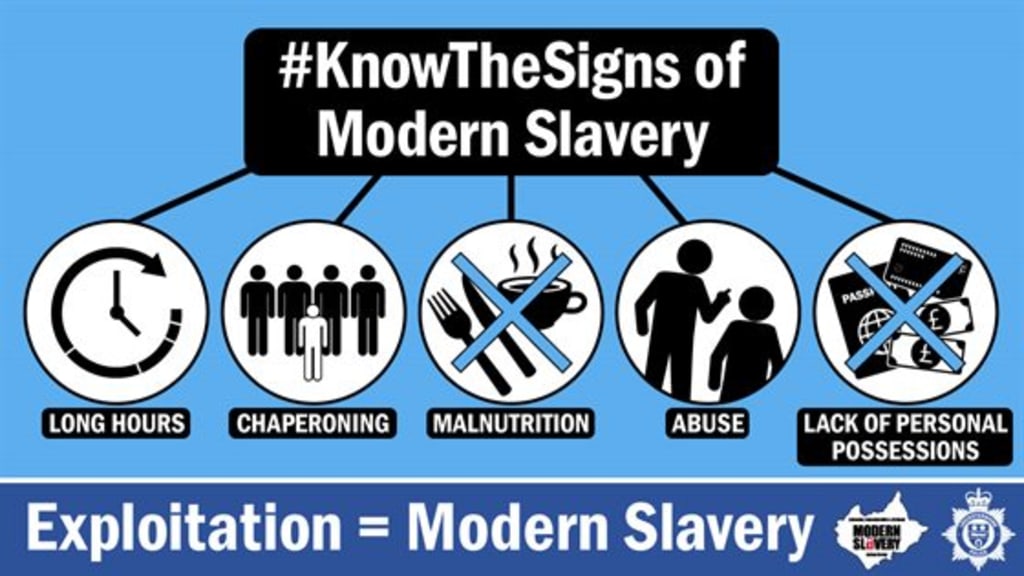
Introduction:
Modern slavery is a global problem that has affected millions of people worldwide. While slavery has been abolished in most countries, it still exists in various forms, including forced labor, debt bondage, and human trafficking. In recent years, the issue of modern slavery has gained more attention in the media and among human rights organizations. However, one aspect of modern slavery that has not received enough attention is the exploitation of skilled workers from other countries in Western countries.
This paper argues that Western countries, including the United States, Canada, and countries in Europe, have created a system of modern slavery under the guise of skilled worker programs. These programs are designed to attract highly skilled workers from other countries, but in reality, they exploit these workers and deny them basic rights and protections.
Theoretical Framework:
Theoretical frameworks that are applicable to this issue include globalization, neoliberalism, and the intersectionality of race, class, and gender. Globalization has led to an increase in the movement of people across borders, resulting in the expansion of labor markets and the demand for skilled workers. Neoliberalism has encouraged the privatization of public services and the deregulation of labor markets, resulting in a reduction of worker protections and the erosion of labor rights. Finally, intersectionality is relevant to this issue because the exploitation of skilled workers is often linked to their race, class, and gender.
Literature Review:
There is a growing body of literature on the exploitation of skilled workers in Western countries. Many studies have shown that skilled workers who come to Western countries on temporary work visas are often subjected to exploitation, abuse, and poor working conditions. For example, a study by the Canadian Centre for Policy Alternatives found that temporary foreign workers in Canada are vulnerable to exploitation and abuse, including wage theft, unsafe working conditions, and discrimination.
Another study by the Human Rights Watch found that H-2B visa workers in the United States are subject to widespread abuses, including wage theft, forced labor, and human trafficking. The report highlighted the experiences of workers from the Philippines who were forced to work long hours without pay and were threatened with deportation if they complained.
Research has also shown that skilled workers from certain countries are more vulnerable to exploitation than others. For example, a study by the University of Toronto found that skilled workers from the Philippines and India are more likely to experience exploitation and abuse than workers from other countries. The study found that workers from these countries are often subjected to lower wages, longer working hours, and worse working conditions than workers from other countries.
Analysis:
The exploitation of skilled workers in Western countries is often linked to the temporary worker visa system. Temporary worker visas, such as the H-1B visa in the United States and the Temporary Foreign Worker Program in Canada, are designed to attract skilled workers from other countries to fill labor shortages in specific industries. These visas are tied to a specific employer, and workers are often unable to switch jobs or leave their employer without facing deportation.
This system creates a power dynamic that allows employers to exploit workers without fear of retaliation. Employers can threaten workers with deportation if they complain about working conditions, and workers are often unable to seek help from labor unions or government agencies. The lack of labor protections and the ability of employers to control workers' immigration status make skilled workers vulnerable to exploitation and abuse.
In addition to the temporary worker visa system, the exploitation of skilled workers is also linked to the intersectionality of race, class, and gender. Skilled workers from certain countries and ethnicities are more likely to experience exploitation and abuse than others. For example, workers from countries such as the Philippines and India are often subjected to lower wages and worse working conditions than workers from other countries. Female workers are also more vulnerable to exploitation and abuse than male workers, particularly in industries such as domestic work and care work.
Finally, Western countries often perpetuate the modern slavery system by failing to provide adequate protections for skilled workers. Despite the existence of labor laws and regulations, these laws are often not enforced, and workers are not provided with the necessary resources and support to ensure their rights are protected. In some cases, the lack of enforcement is due to the political influence of business interests and the prioritization of economic growth over worker rights.
Moreover, the COVID-19 pandemic has worsened the situation for many skilled workers, particularly those on temporary work visas. Many of these workers were laid off during the pandemic and were unable to return to their home countries due to travel restrictions. As a result, they were left stranded without adequate support or protections. In some cases, workers were forced to continue working in unsafe conditions or faced deportation if they refused to do so.
Conclusion:
The exploitation of skilled workers in Western countries under the guise of skilled worker programs is a form of modern slavery that needs to be addressed. This system perpetuates a power dynamic that allows employers to exploit workers without fear of retaliation, and workers are denied basic rights and protections. The intersectionality of race, class, and gender further exacerbates the vulnerability of skilled workers.
To address this issue, Western countries must reform their temporary worker visa systems to provide workers with greater mobility and agency. Workers must be able to switch jobs without fear of deportation and have access to labor protections and resources. Moreover, governments must enforce labor laws and regulations to ensure that workers are protected from exploitation and abuse.
Finally, the international community must recognize the exploitation of skilled workers as a form of modern slavery and work together to address this issue. This includes supporting organizations that advocate for worker rights and promoting global standards for the protection of workers. Only by taking these steps can we end the modern slavery system that is perpetuated under the guise of skilled worker programs in Western countries.
About the Creator
Rio Vijey
As a lifelong lover of storytelling, I am thrilled to begin my journey as a writer. I have a vivid imagination and a passion for exploring the depths of the human experience through fiction.






Comments
There are no comments for this story
Be the first to respond and start the conversation.